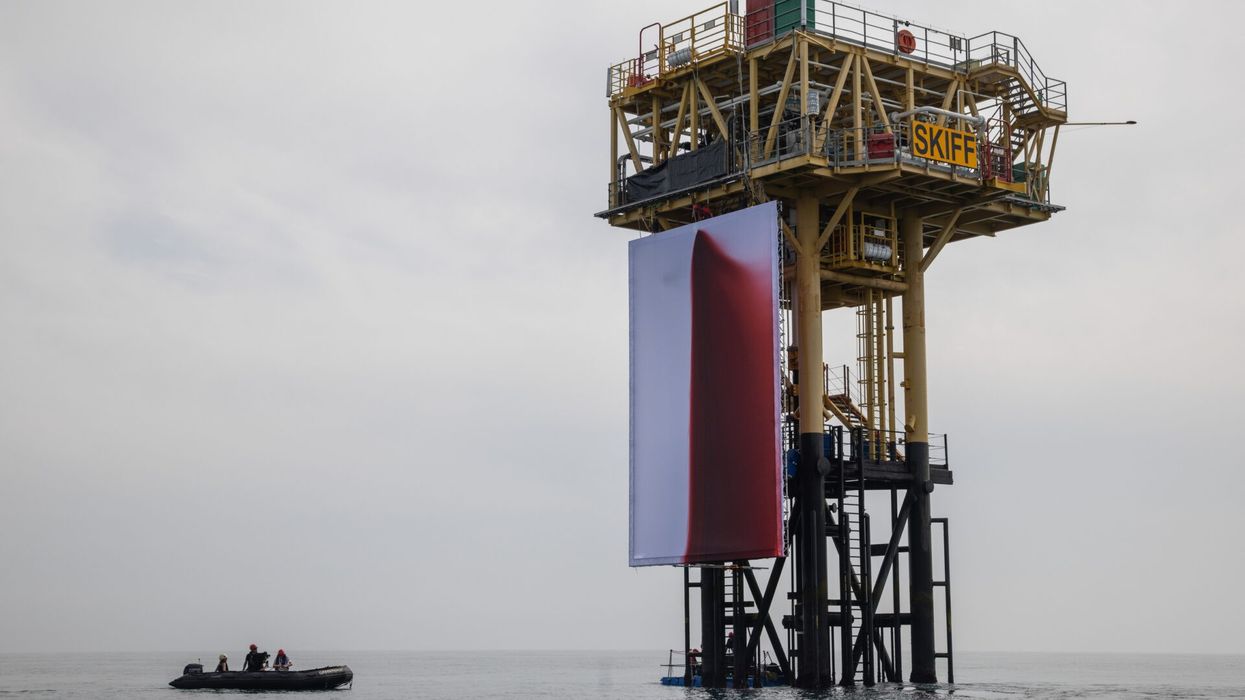BRITISH Asian artist Anish Kapoor said his work, Butchered, attempts to "bring home the horrors” of fossil fuels to the planet after Greenpeace activists installed it at a gas rig in the North Sea.
Seven climbers boarded and scaled Shell's gas platform Skiff, 45 nautical miles off the Norfolk coast on Wednesday (13).
After securing a giant canvas to one side of the structure, the activists hoisted a high-pressure hose on top of the canvas at a height of 16 metres above the sea. They then pumped 1,000 litres of blood-red liquid that gushed into the fabric, creating a vast crimson stain.
“I wanted to make something visual, physical, visceral to reflect the butchery they are inflicting on our planet: a visual scream that gives voice to the calamitous cost of the climate crisis, often on the most marginalised communities across the globe,” Kapoor said.
Designed specifically for this artwork, the blood-like solution is composed of seawater, beetroot powder and non-toxic, food-based pond dye. Greenpeace claimed this is the world's first artwork at an active offshore gas site.
Kapoor, 71, said, “The carbon dioxide released by burning fossil fuels is invisible, but we are witnessing the devastation that its extraction wreaks on our world.”
He added, “Butchered attempts to bring home the horror, giving voice to the moral and physical destruction caused by ruthless profiteers. [It] is also a tribute to the heroic work done in opposition to this destruction, and to the tireless activists who choose to disrupt, disagree and disobey.”
Philip Evans, senior campaigner at Greenpeace UK, said, “Extreme weather is hitting close to home, but the extraction of fossil fuels driving the climate crisis is often out of sight.
“This artwork is a visual gut-punch that makes visible the suffering and damage caused by the oil and gas industry right at the place where the harm begins. While the fossil fuel sector makes billions from climate destruction, ordinary people are left to pick up the rising costs of flood damage, droughts and wildfires.
“Governments need to start holding oil giants like Shell to account and make them pay for the enormous damage they are causing.”
Shell UK said safety at sea was its priority and expressed concern over Greenpeace entering a "restricted safety zone" around the platform without permission, which it said is established under UK law to protect people and prevent collisions.
“Their actions were extremely dangerous, involved illegally trespassing and put their own and others' lives at risk. We respect the right of individuals and organisations to protest, but it must be done safely and lawfully,” a spokesperson said.





